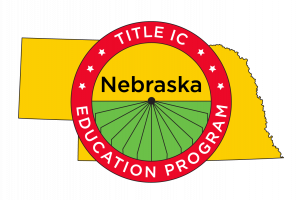Web Resources
ACT Fee Waiver Eligibility Requirements and Procedures
Everyone has the potential to learn. A student’s family income should not determine his or her educational or career opportunities. During the 2021-2022 school year ACT will again offer the ACT test fee waiver program to eligible students.
- https://www.affordablehealthinsurance.com/medicaid/
- https://www.affordablehealthinsurance.com/medicaid/spanish/
Apostille (Nebraska Secretary of State)
An apostille is an official certificate that is issued by the Secretary of State that certifies the transfer records (e.g., school transcripts, diplomas, and/or degrees) are valid. There are no transfer documents available for grades 10th -12th since they are not part of basic education; however, grades 10-12 do require an apostille.
Binational Migrant Education Initiative (BMEI)
In 1976, a group from California initiated efforts to work with Mexico on issues related to the education of students who migrate between California and Mexico. Thereafter, other border States became involved, giving birth to the Binational Migrant Education Initiative (BMEI). The initiative was started and supported by individual States that had a migrant student population that migrates regularly between Mexico and the United States.
College Assistance Migrant Program (CAMP)
The College Assistance Migrant Program (CAMP) assists students who are migratory or seasonal farmworkers (or children of such workers) enrolled in their first year of undergraduate studies at an IHE. The funding supports completion of the first year of studies.
The Family Educational Rights and Privacy Act (FERPA)
The Family Educational Rights and Privacy Act (FERPA) (20 U.S.C. § 1232g; 34 CFR Part 99) is a Federal law that protects the privacy of student education records. The law applies to all schools that receive funds under an applicable program of the U.S. Department of Education.
Farmworker Justice Fund, Inc. (FJF)
The Farmworker Justice Fund, Inc. (FJF), established in 1981, is a non-profit organization located in Washington, DC that has been helping empower migrant and seasonal farmworkers to improve their wages and working conditions, labor and immigration policy, health and safety, and access to justice. Using a multi-faceted approach, FJF engages in litigation, administrative and legislative advocacy, training and technical assistance and public education.
High School Equivalency Program (HEP)
The HEP was created in 1967 to help migratory and seasonal farmworkers (or children of such workers), who are 16 years of age or older and not currently enrolled in school, obtain the equivalent of a high school diploma and, subsequently, gain employment or begin postsecondary education or training. The program serves more than 7,000 students annually. Services to HEP participants include outreach to eligible individuals; educational and counseling services designed to help students obtain a GED certificate; placement services in a university, college, junior college, military service, or career position; weekly stipends; residential housing; and exposure to educational and cultural activities usually not available to migrant or seasonal farmworkers. For additional information: http://tri-statehep.org/index.htm
National Association of State Directors of Migrant Education (NASDME)
The National Association of State Directors of Migrant Education (NASDME) is the professional organization of state officials charged with the administrative responsibilities of using these monies effectively and productively to help all migrant children succeed in school. NASDME provides its members ongoing information about events and activities, and offers new members training, guidance and counsel. It prepares publications to inform a wider audience about Migrant Education. It represents the Migrant Education community in continuing dialogues with the Federal government. NASDME annually sponsors a National Migrant Education Conference to provide training, leadership, and networking opportunities for all persons concerned with the education of migrant children.
National Center for Farmworker Health (NCFH)
The National Center for Farmworker Health (NCFH), established in 1975, is dedicated to improving the health status of farmworker families by providing information services and products to a network of more than 500 migrant health center service sites in the United States as well as other organizations and individuals serving the farmworker population. NCFH is a private, not-for-profit corporation located in Buda, Texas whose mission is “to improve the health status of farmworker families through appropriate application of human, technical, and information resources.”
Office of Migrant Education (OME)
The Office of Migrant Education (OME) administers four grant programs that provide academic and supportive services to the children of families who migrate to find work in the agricultural, fishing, and timber industries. The programs are designed to help migrant children, who are uniquely affected by the combined effects of poverty, language and cultural barriers, and the migratory lifestyle, to meet the same challenging academic content and student academic achievement standards that are expected of all children. The Migrant Education Program is based on the premise that, with the right supportive services, migrant children can achieve at the same level as their peers.
www.ed.gov/programs/mep/index.html (MEP)
Portable Assisted Study Sequence (PASS) Program
The Portable Assisted Study Sequence (PASS) Program consists of self-contained, semi-independent study courses which enable students to earn secondary-level academic credits. Participating students generally take these courses in order to make up courses, meet graduation requirements or cope with scheduling difficulties.
Pew Hispanic Center
The Pew Hispanic Center, founded in 2001, is a nonpartisan research organization supported by The Pew Charitable Trusts. Its mission is to improve understanding of the U.S. Hispanic population and to chronicle Latinos’ growing impact on the entire nation. The Center does not advocate for or take positions on policy issues. It is a project of the Pew Research Center, a nonpartisan “fact tank” in Washington, DC that provides information on the issues, attitudes and trends shaping America and the world.



